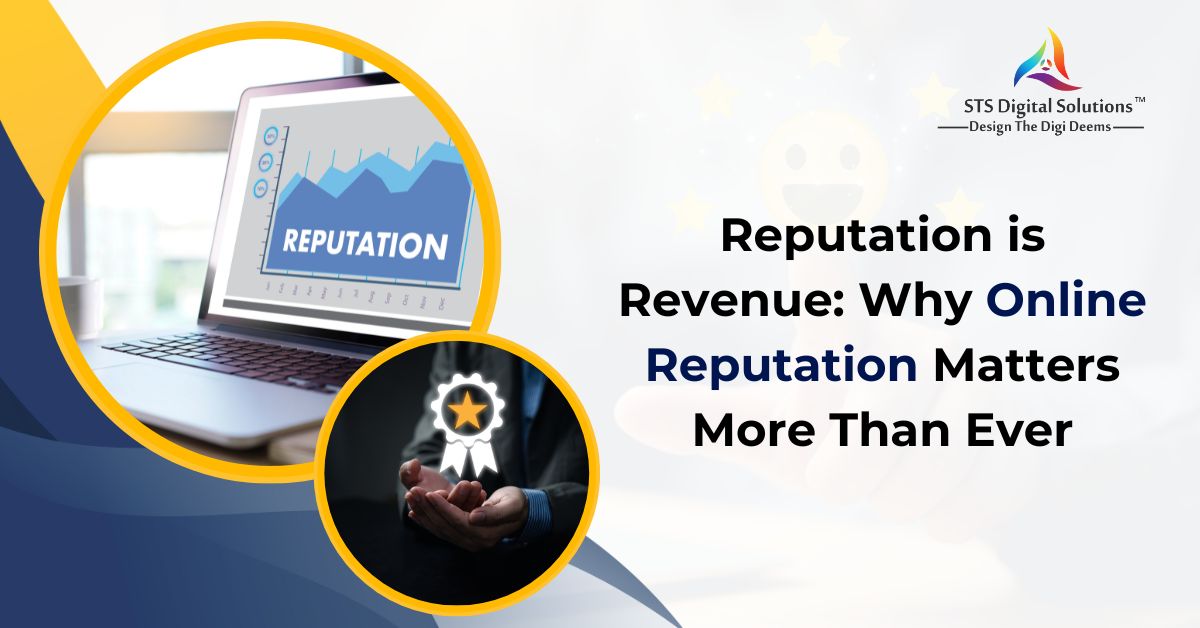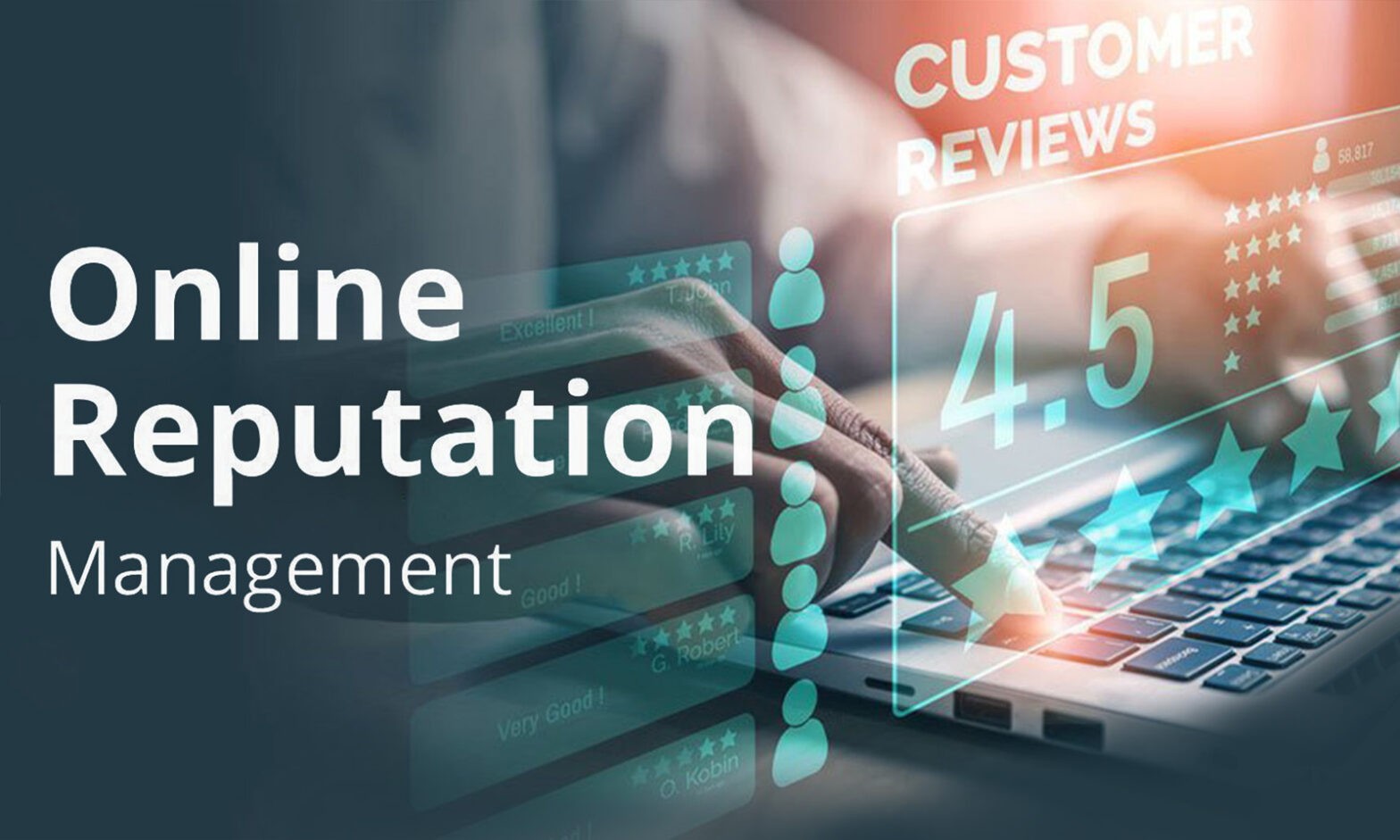Reputation is Revenue: Why Online Reputation Matters More Than Ever

In an era where everything seems to be digital, the success of a brand is judged not only by the strength of the product/service offering but also by the reputation of that brand. In these times, consumers are known to research everything on the internet before making a purchase. One bad review or negative post going viral can create the greatest setback for a brand. This is where online reputation comes in. "Your reputation is your revenue"-this statement is no longer a cliche; today it has become a reality in the marketing world.
Understanding Online Reputation
The term 'online reputation' refers to how a business appears on the internet via search engines, review sites, social networking sites, and forums. Essentially, the reputation is formed by the content your business creates and shares and the content created by others, for instance: Customers, influencers, or news media.
A good online reputation helps earn your business's trust and credibility, whereas a bad reputation can mean many lost customers and profit erosion.

Why Is Online Reputation Important in Today's World?
First Impressions Are Online: Most users will Google your business before even contacting you. A bad search appears, and that journey in decision-making will be over before it even starts.
- Trust Is the Baseline: A strong online reputation will build trust in your customers. Research shows that 90% of consumers trust online reviews just as much as personal recommendations.
- Impact on Sales: With a good online reputation, sales increase, conversions get better, and brand loyalty holds strong.
- A Distinct Competitive Advantage: In an era of an oversupplied market, your online reputation becomes your unique differentiator.
Key Elements That Influence Online Reputation
Several points come together to build your brand's presence online:
- Search Engine Results: Anything that can be searched regarding their business.
- Customer Reviews: Star ratings as well as written feedback on platforms like Google, Yelp, and Facebook.
- Media Coverage: Articles, blogs, or news concerning the brand.
- Social Mentions: The voices of people speaking about your business on social media.
- Website Content: Blogs, case studies, and testimonials from your website.
The Role of Online Reviews and Ratings
When it comes to measuring public sentiment, online reviews may be the most immediate. The truth is, that customers will tend to believe their peers rather than what the brand is saying. A slew of 5-star reviews builds credence, while even one complaint that goes unresolved can be treated as a yellow flag.
Pro Tip: Make it a practice to respond to all reviews, whether negative or positive! A professional response to criticism indicates the business is listening and values customer feedback.

Social Media and Brand Image
On one hand, social media is considered a positive opportunity, on the other, real-time critique may affect a business's ability to put two words together.
Properly curated social platforms showcase your brand's personality, foster community, and strategically enhance your online reputation; however, the opposite holds if the messaging becomes inconsistent or if crises spiral out of hand and into PR disasters.
Quick Tip: Investing in social listening tools should help generate real-time tracking of brand mentions and sentiments.
How to Manage and Improve Your Online Reputation
This is how a business can actively promote itself:
- Claim Your Listings: Ensure up-to-date, accurate listings for your Business Profile at Google, Yelp, and other directories.
- Encourage Positive Reviews: Ask customers for honest reviews when he/she has a good experience. Handle Criticism Gracefully: Lend an ear to the client who brings negative feedback and comes up with solutions.
- Publish Quality Content: Work on a blog, success stories, and valuable nuggets to show off expertise.
- Regular Monitoring: Take advantage of these tools as mention tracking, review tracking, and rank tracking.
Tools for ORM Online Reputation Management
Here are some of the most popular ORM tools that help streamline your reputation management:
- Google Alerts: Monitor your brand name mentions across the web.
- Hootsuite/Sprout Social: Overseeing social media engagement.
- Reputation.com: A full-fledged ORM platform.
- Trustpilot/Yotpo: Collecting and presenting reviews.
- SEMrush/Brand24: Analytics and real-time monitoring.
By combining all of these tools, you can get closer to always being on the pulse of your online presence and allow you to act out before a problem erupts.
Common Mistakes Businesses Make
- Ignoring Negative Feedback: Silence is not golden when it comes to online complaints.
- Fake Reviews: Buying reviews could snap back at you and harm your credibility.
- Inconsistency: Confusion causes a disunited message across channels.
- Slow Response Time: Slow emission in response to customers' inquiries may be received as unprofessional.
All these versions will help build a more real and trustworthy brand online.
Future Characteristics of Online Reputation Management
Online management of reputations is a never-ending process, for like other industries, ORM is changing with time:
- AI and Sentiment Analysis: AI is now being used by businesses to understand sentiment trends.
- Video Reviews and Testimonials: The acceptance of visual content is growing more and more.
- Influencer ORM: Getting micro-influencers onboard to instill trust.
- Voice Search and Smart Assistants: An optimization strategy for voice queries will become paramount.
Keeping an upper hand on these trends would assure good visibility for your brand while maintaining positive sentiment.
Conclusion
An online reputation involves great economics for a business. It is hardly about dealing with reviews or social media, it is primarily about adopting a strategic viewpoint and shaping people's perception of the business. Given that customers tend to make purchase decisions based on digital impressions, it implies that the investment in online reputation management is no longer a matter of choice.
STS Digital Solutions specializes in formulating comprehensive reputation management strategies aligned with your brand goals. Whether it is to come out of a negative PR event or create a robust brand image beforehand, our team is here to transform reputation into revenue. Get in touch now, and start enhancing your brand’s digital trustworthiness!


